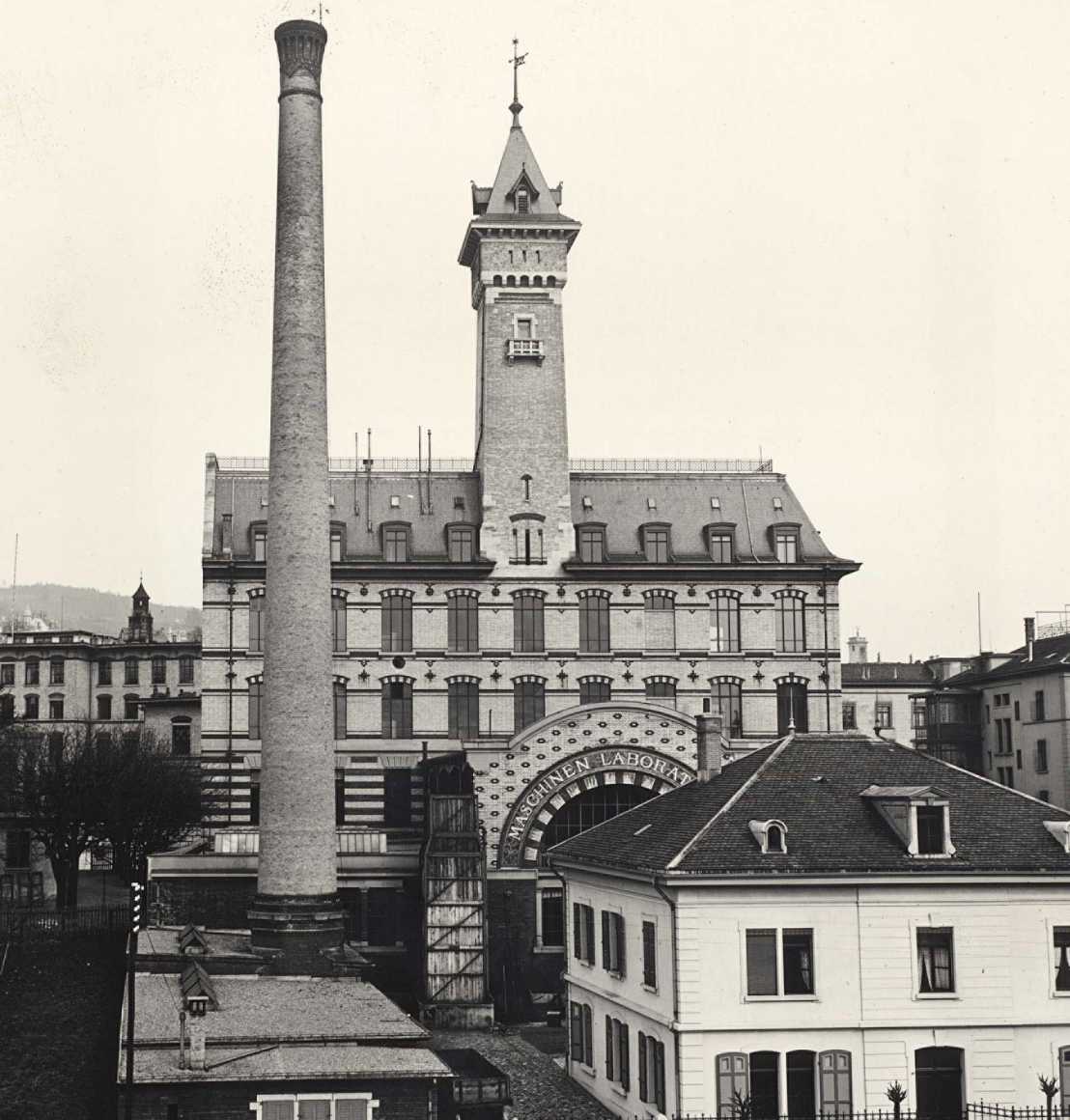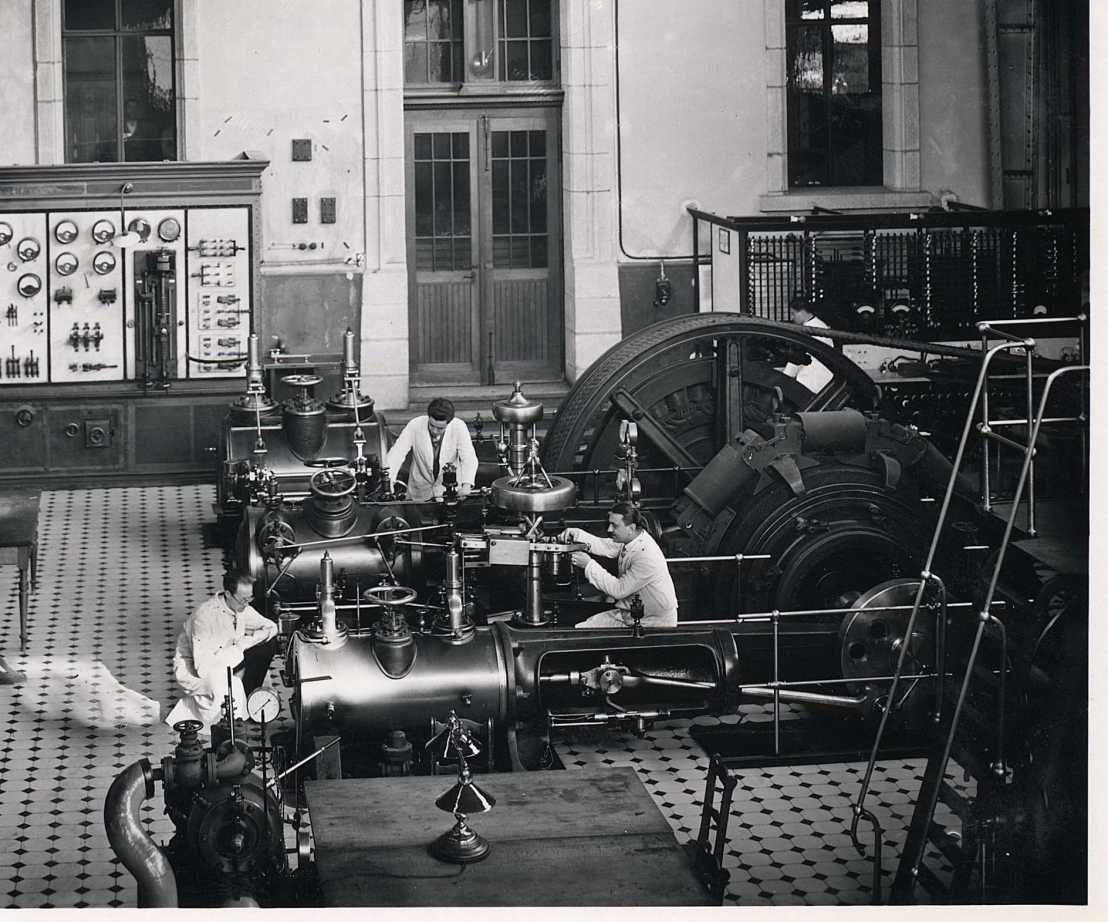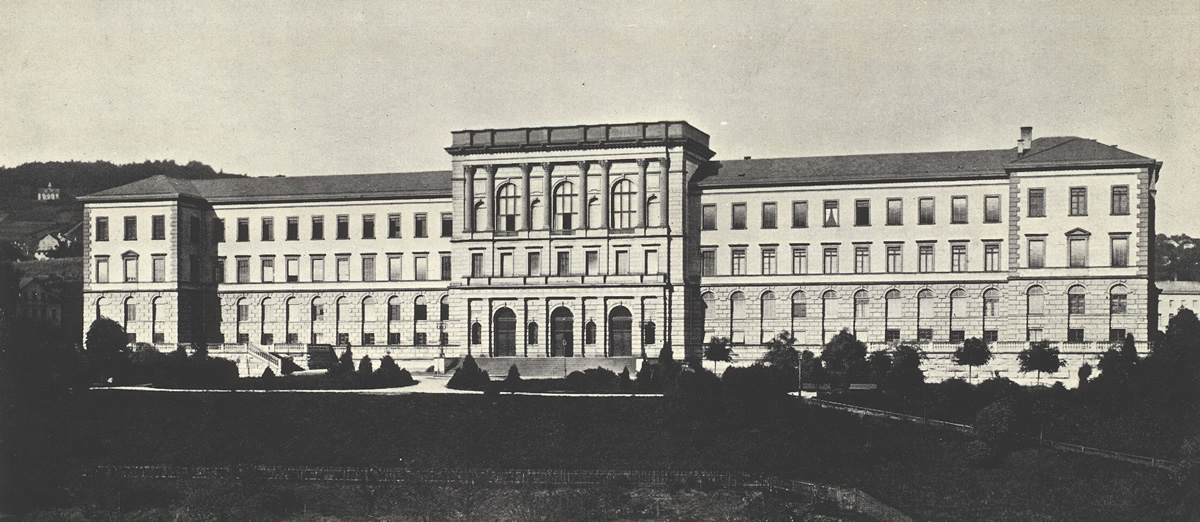Historical Background
In 1855, seven years after the Swiss Confederacy was founded, the Federal Polytechnical School opened its doors in Zurich. Right in the middle of the Industrial Revolution, this fulfilled the long-held dream of creating a national university to educate the future Swiss elite.
In the beginning, the university was comprised of six sections, including architecture, engineering which covered road, train, bridge and waterways, and the mechanical-technical section for mechanical engineering. Already by 1924 the number of sections had increased to twelve. Today, there are 16 departments which function as educational and research units. Initially, a degree program lasted only four semesters, by 1930 this had increased to eight and today the standard is six semesters for a Bachelor degree and nine or ten for a Master degree.
The Department

The Department for Mechanical and Process Engineering, D-MAVT, came into being in 1999 and consists basically of the pre-existing department of mechanical engineering – which was established when the university opened – and its additional institutes. It is comprised of nine institutes, three independent professorships and more than 35 professors. Currently, over 3000 young people study in the department and the number is rising. Every year approximately 60 students complete their doctorate here.
The Buildings
Since the main building of the former “Polytechnikum” was soon bursting at the seams, the machine laboratory on Sonneggstrasse was completed in 1900. The new laboratory was equipped with steam and combustion engines, a cryogenic machine and steam turbines. In the 1980’s, the machine laboratory was renovated, enlarged and modernized, and the CLA building on Clausiusstrasse was opened. In 2009, D-MAVT moved into the LEO on Leonhardstrasse and in 2014, a part of the department moved into the new LEE-building “Upper Leonhard” (Oberer Leonhard), which is also situated on Leonhardstrasse. The department has satellite stations in CAB on Universitätsstrasse, in the so-called Technopark, at IBM in Rüschlikon and in First on Hönggerberg.
Research

The change of economic focus in Switzerland (de-industrialization and a strong shift to the service industry), networking with national and international universities and the formation of new departments at ETH Zurich has caused a shift in research focus within the Department of Mechanical and Process Engineering. Fields such as hydraulics, refrigeration, precision mechanics and textile machinery have been discontinued as professors retired.
Over time, research into machine and equipment parts has become less significant, whereas product, system and process-oriented engineering aspects have come to the fore. Instead of time-consuming experiments, researchers make more use of computer-based modeling and simulations. – However, experiments still take up a large part of department financing budgets, since new methods, for example laser technology, are very expensive.
Interdisciplinary fields of knowledge such as mechatronics and robotics (combining mechanical and electrical engineering and informatics), process engineering (mechanical engineering, chemistry and biology) and electrical engineering (mechanical engineering, physics and chemistry) extend the area of research. Additionally, economic and social aspects and effects on the environment play a greater role. Today’s research at D-MAVT is therefore closely connected to fundamentals of natural sciences, bio-scientific processes, information technology, mobility, mechatronics and sustainability.
Education
Business development and the introduction of technical colleges has extended and enlarged vocational education in engineering and natural sciences, and made academic studies more and more scientific. An important change occurred in 2002, when the diploma study transitioned into Bachelor and Master degrees, in order to harmonize with European certificates and to increase student mobility. For students who have completed the Bachelor degree, the department currently offers a choice of seven different Master programs all with a choice of tutor and interdisciplinary cooperation.
Today, the degree in mechanical and process engineering creates graduates who are generalists with a broad and interdisciplinary educational background. The aim is to enable graduates to devise and realize solutions for complex systems and their components in the fields of mechanical and process engineering. The program therefore links classical disciplines such as mechanics, mechanical elements, thermodynamics, control and fluid dynamics with the natural sciences (physics, chemistry and biology) and new technologies susch as electronics, information technology and material sciences. Entrepreneurial skills such as marketing, finance, law, management and social competence to work in international teams are essential. In this respect, it will also be important in the future to adapt the program to the social and technical changes in order to prepare students for their professional lives.

